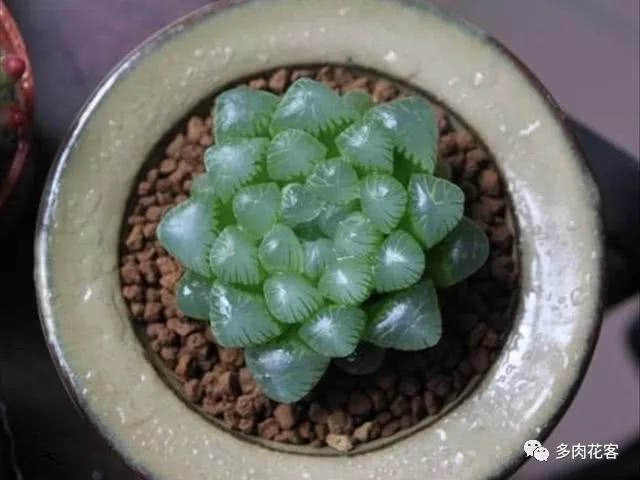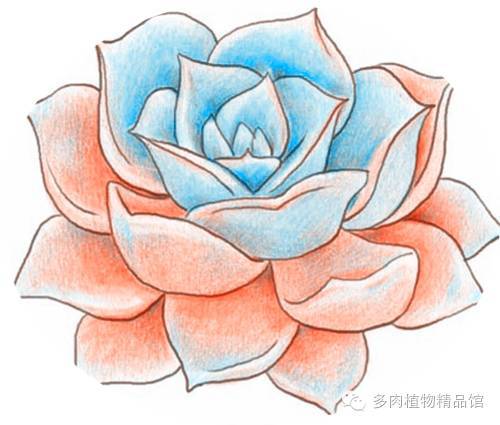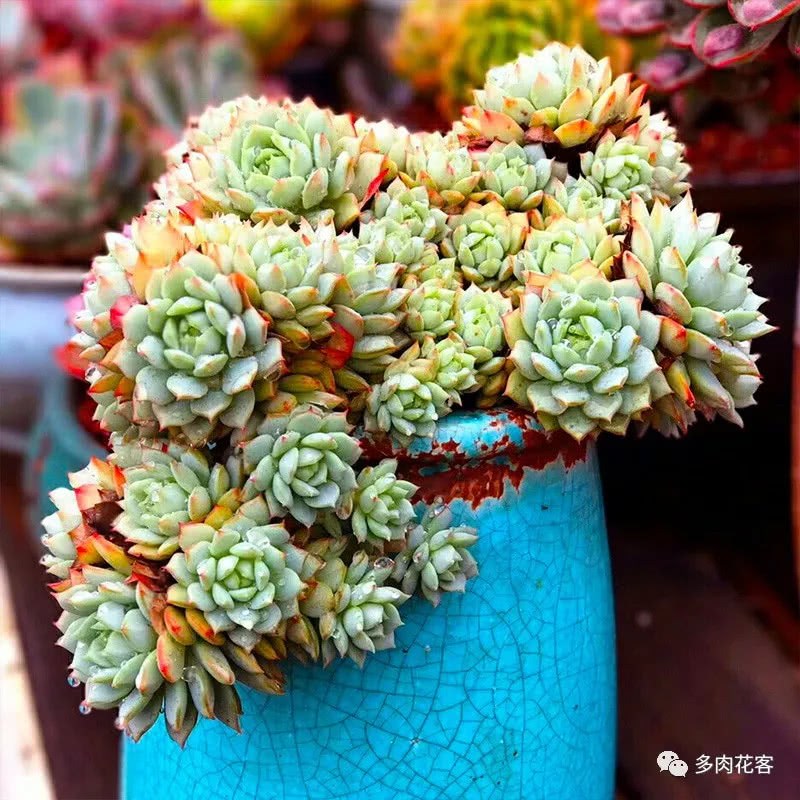What is the cause of the desiccation of Yulu succulent leaves? How to solve the problem?

Yulu is a variety of soft leaves in succulent plants. The most common varieties are grass jade dew, jade jade dew and thorn jade dew, which are small and exquisite, rich in species and crystal clear in leaf color. It is one of the succulent plants that many people like to plant in recent years.
Exposure to the sun causes the leaves of Yulu to dry up
Yulu likes also can not be exposed in the sun, can give him scattered light, if you see its leaves lose luster, become withered, do not blindly water, which will lead to its rotten roots, just like the leaf surface to spray water mist, this can increase the leaf permeability and plumpness and brightness, when the temperature is low, with plastic bottles on the rope to form a greenhouse effect.
Caused by basin soil
In spring and autumn, the temperature in these two seasons is that if it is observed that he is beginning to grow, it means that he is not strong at this time. After the basin soil is dry, the basin soil can be thoroughly watered, put in a ventilated place for maintenance, and the excess moisture of the basin soil can be removed. When the temperature is high in muggy summer, the jade dew stops growing.
Temperature
The origin of Yulu is South Africa. It likes to grow in a warm and dry semi-shady environment. He is afraid of water. The most suitable temperature for its growth is 12 to 28 degrees. It is suitable for growing in a climate that is warm in winter and cool in summer. The plant will appear dormancy or semi-dormancy, slow growth or stagnation. It can be cultured in a ventilated and dry place.
Watering
Yulu watering, it is necessary to master the non-dry non-watering topping, to avoid stagnant water, let alone let him in the rain, in order to avoid rotting roots, can not let its long-term anti-rot plant will not die, but there will be leaf fracture, leaf color dim.
Disease causes
The main disease of Yulu is rotten root, which is due to the poor permeability of the soil and potted plants, which leads to long-term stagnant water in the soil. At this time, loose and permeable soil should be selected for planting, and long-term stagnant water in the potted plant should not be allowed.
Conclusion: if the leaves of cultured Yulu are withered, it is caused by the above reasons. I also mentioned the solution above. As long as you follow the doctor's method, you can easily solve the problem, and the leaves of Yulu are withered.
- Prev

Succulent pots are so simple.
When it comes to changing pots for succulent plants, flower friends frown for fear that they will not be able to live after the change. Can succulent plants really "change pots and die"? As long as the method is used correctly, how many pots can be used to burst the basin! 1. First put the original basin.
- Next

Ordinary succulent plants make the most perfect old stakes.
TP, also known as Tibby, is a cross between quiet Night and Chihuahua. Allen is said to be a good sister of peach eggs, but she is easier to serve than peach eggs. Onsno, it is easy to produce jelly yellow succulent, reproductive ability.
Related
- Wuhan Hospital Iron Tree Blooming Result Was Instantly Frightened by the Gardener Master
- Which variety of camellia is the most fragrant and best? Which one do you like best?
- What is the small blue coat, the breeding methods and matters needing attention of the succulent plant
- Dormancy time and maintenance management of succulent plants during dormancy
- Minas succulent how to raise, Minas succulent plant pictures
- What are the varieties of winter succulent plants
- How to raise succulent plants in twelve rolls? let's take a look at some experience of breeding twelve rolls.
- Attention should be paid to water control for succulent plants during dormant period (winter and summer)
- Watering experience of twelve rolls of succulent plants
- Techniques for fertilizing succulent plants. An article will let you know how to fertilize succulent plants.

